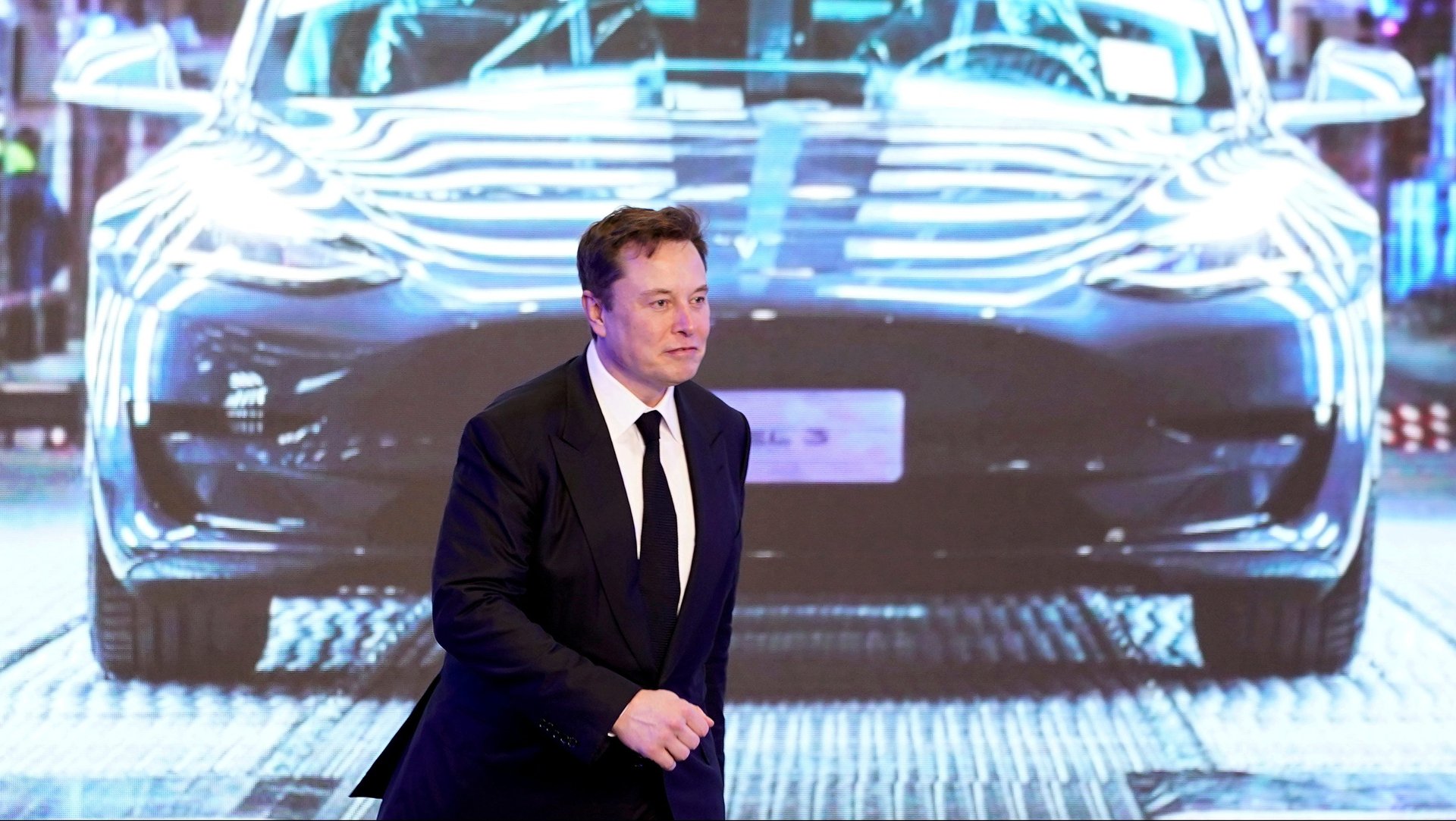An unexpected Model 3 test drive is raising the hopes of India’s Tesla fans
Tesla fans in India reading the tea leaves recently spotted a new sign that that their long wait to drive the popular US electric cars will finally come to an end.


Tesla fans in India reading the tea leaves recently spotted a new sign that that their long wait to drive the popular US electric cars will finally come to an end.
In the wake of a tweet from Elon Musk earlier this year expressing his desire to bring his cars to India, and eventually build them here, communications between the US electric pioneer and Indian officials have been ongoing. This week a Tesla India executive met on Wednesday (Sept. 15) with Giridhar Aramane, secretary of the country’s road transport and highways ministry. After the meeting concluded, Aramane took a red Tesla Model 3 for a short drive on the Delhi roads.
The meeting comes at a time when the excitement around Tesla’s India entry is at its peak, and the image of the car on the capital’s roads could be a sign that the two sides will find some common ground.
Last year Tesla set up an India unit, and on Sept. 1 Mint financial newspaper reported that India had approved four of Tesla’s models for sale in the country, though the government hasn’t shared specifics of the approval.
While the substance of recent discussions between Tesla and the government remains largely unknown, it’s likely that they center on tax concessions for imported cars—something that Tesla’s CEO Elon Musk has been demanding from the Narendra Modi Government for quite some time—and India’s “Made in India” goals.
What does Elon Musk want from Narendra Modi?
It’s been a little more than two years since Musk began asking for tax concessions from the Modi government.
In July the billionaire CEO once again reiterated that the company’s India debut is delayed because of India’s import duties, which are the “highest in the world by far for any large country.” Presently electric car imports are taxed at either 60%, if they cost less than $40,000, or 100% if their value is above that threshold.
The California-based firm is asking the Indian government to reduce the import duty on electric cars to 40%, Bloomberg has reported. In addition to this, Tesla reportedly has also asked to for a 10% social welfare surcharge to be waived. The social welfare charge presently applies to all imported cars, and is supposed to fund health and education programs in the country.
While these may seem like lofty demands, Tesla has seen concessions in other large markets keen to learn from the electric vehicle pioneer. In 2018, China changed its joint-venture rules for EV auto manufacturers, allowing Tesla to set up its own factory in Shanghai.
What India wants from Tesla
The Modi government stance is local manufacturing must happen first. It has reportedly asked the company to start manufacturing in India and after that, it might consider its stand on tax concessions to the US auto major.
“The centre is not giving such concessions to any auto firm and giving duty benefits to Tesla will not send a good signal to other companies that have invested billions of dollars in India,” government sources told news agency PTI.
Still compared with other foreign auto manufacturers focusing on conventional cars, Tesla is a leader in the EV space, and India is keen to widely adopt the low-emissions vehicles. In April, union minister Nitin Gadkari said that the timing for Tesla to start manufacturing in India couldn’t be better given the country’s increasing focus on electric vehicles.
“Tesla is already sourcing various auto components from Indian automakers and setting up base here would be economically viable for it,” he said.